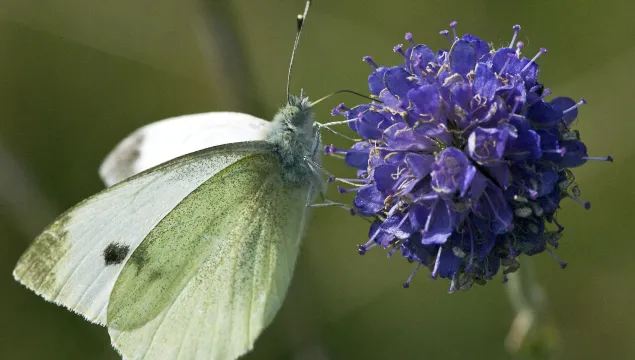
Small white
The small white is a common garden visitor. It is smaller than the similar large white, and has less black on its wingtips.

The small white is a common garden visitor. It is smaller than the similar large white, and has less black on its wingtips.
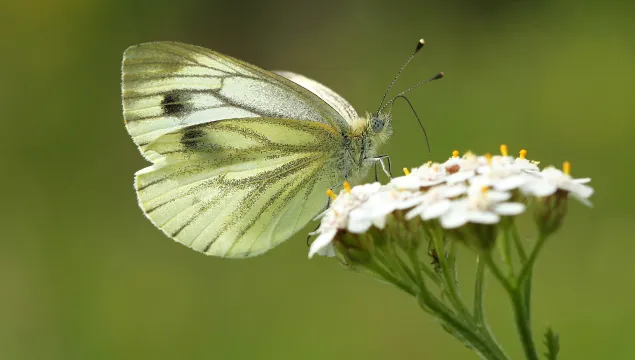
The green-veined white is a common butterfly of hedgerows, woodlands, gardens and parks. It is similar to other white butterflies, but has prominent green stripes on the undersides of its wings.
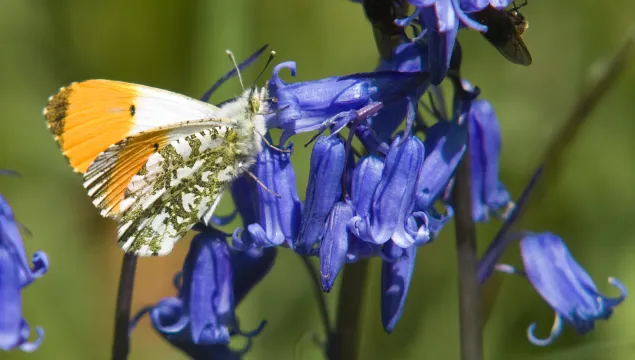
It’s easy to see where these butterflies get their name – the males have bright orange tips on their wings! See them from early spring through to summer in meadows, woodland and hedges.
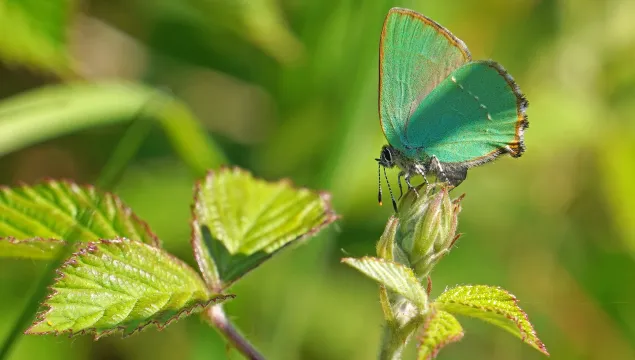
The green hairstreak is the UK's only green butterfly. Look out for the vibrant, metallic sheen of the undersides of its wings on grassland and moorland, and along woodland rides.
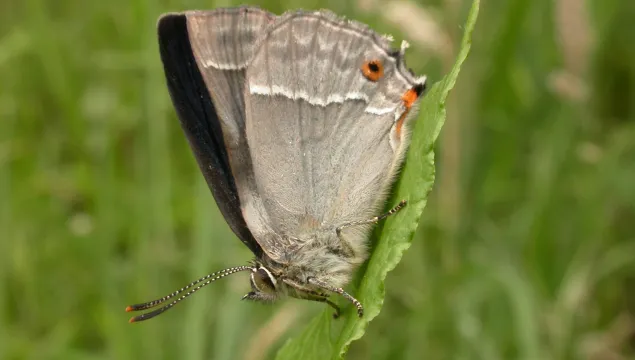
The Purple hairstreak is an elusive butterfly with a brilliant purple sheen. It is entirely reliant on oak trees and can be spotted chasing around the treetops in woodlands and parks.
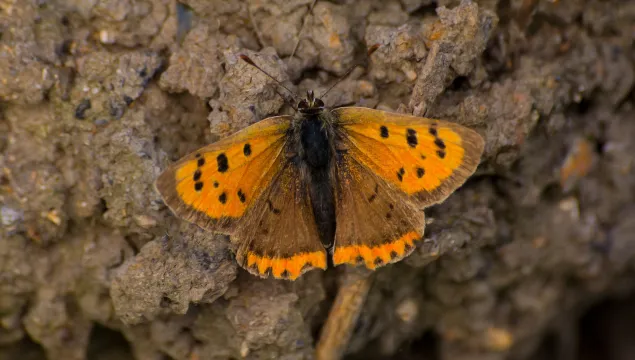
The small copper lives up to its name in both colour and size! Look out for it from April onwards in dry, sunny habitats like heathland, downland and woodland. It can be spotted in gardens, too.
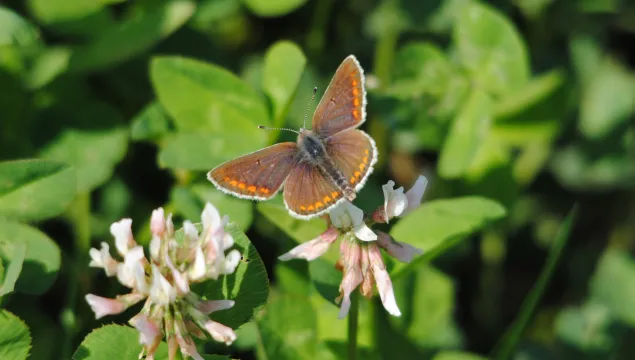
The Brown argus favours open, chalk and limestone grasslands, but can also be spotted on coastal dunes, in woodland clearings and along disused railways.
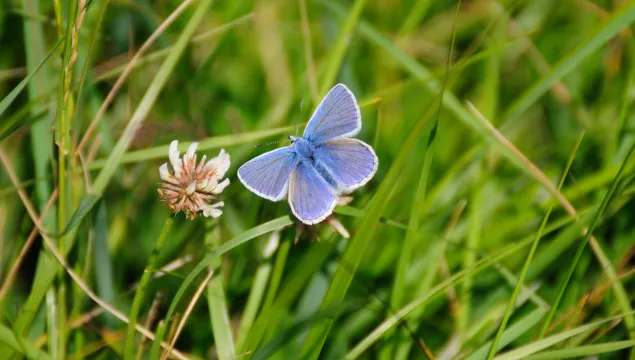
The common blue butterfly lives up to its name - it's bright blue and found in all kinds of sunny, grassy habitats throughout the UK! Look out for it in your garden, too.
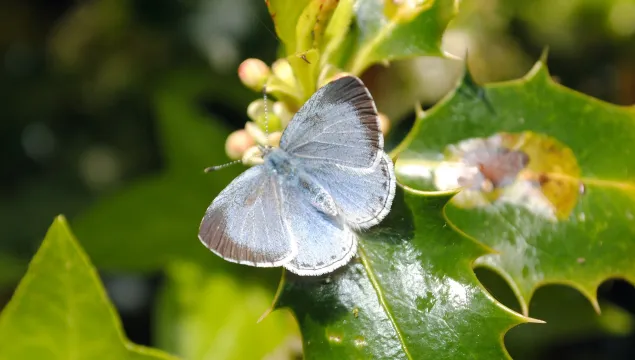
Look out for the small Holly Blue in your garden or local park. It is the first blue butterfly to emerge in spring, and a second generation appears in summer. The caterpillars are fond of holly and ivy.
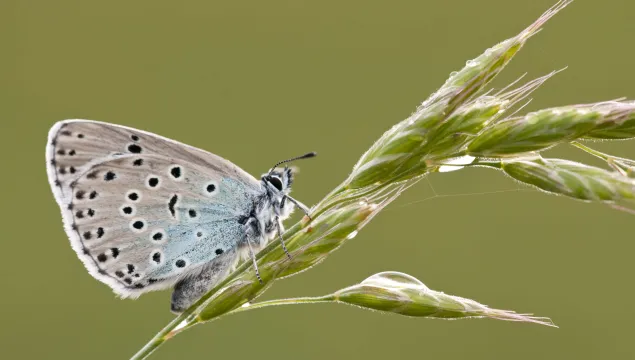
Despite its name, the large blue is a fairly small butterfly, but the largest of our blues. It was declared extinct in 1979, but reintroduced in the 1980s and now survives in southern England.
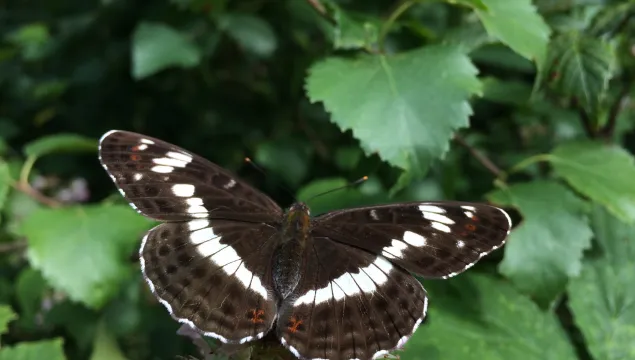
The White admiral is a striking black-and-white butterfly with a delicate flight that includes long glides. It prefers shady woodlands where it feeds on Bramble.
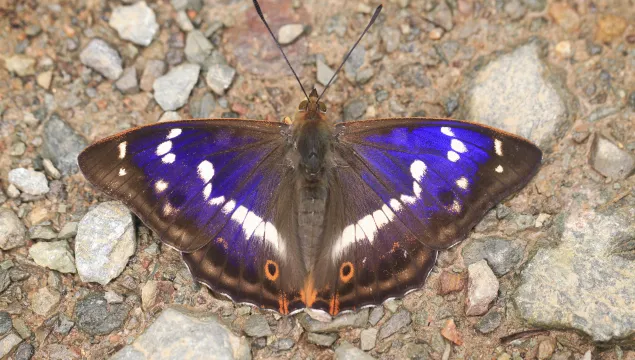
The male purple emperor is a stunning butterfly with a brilliant purple sheen. Look for it feeding around the treetops in woodlands, or on damp ground, animal droppings or even carrion in the morning.